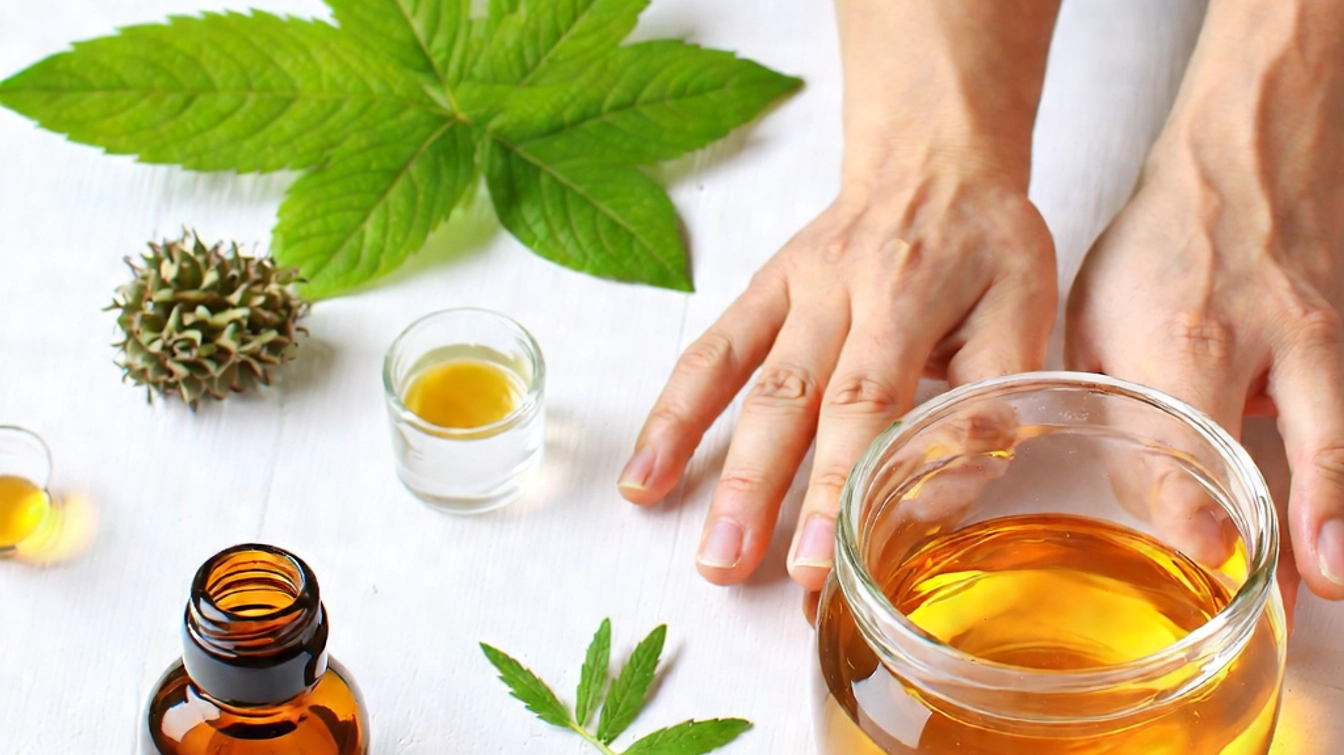Headaches can strike at the most inconvenient moments, impacting everything from your focus to your overall mood. Whether you’re dealing with a dull tension headache or a pounding migraine, finding relief is often a top priority. The good news is, there are solutions—from natural remedies for headaches like acupressure, pressure points and aromatherapy to medical treatments tailored for more persistent pain. In this blog, you’ll uncover practical tips, expert-backed advice, and effective strategies to manage headaches and improve your quality of life. Whether you’re looking to try essential oils, herbal teas, or need clarification on how caffeine helps with headaches relief, this guide has you covered.
Check out a helpful video on migraine home remedies for additional insights.
Understanding the Causes of Headaches
Headaches are multifaceted, influenced by a range of factors, from daily habits to environmental conditions. By identifying the underlying causes, you can take actionable steps to prevent or manage them effectively. Below we explore some of the most common culprits and how to address them.
Stress and Tension
Stress isn’t just a mental weight; it often translates into physical tension, particularly in your neck, shoulders, and scalp. This tension can tighten muscles, reducing blood flow and causing what’s commonly known as a tension headache. Think of it as your body holding onto stress like a clenched fist—not relaxing until you release the stress.
Relaxation techniques can serve as effective antidotes. Deep breathing exercises, progressive muscle relaxation, and mindfulness meditation are excellent tools to calm both mind and body. Additionally, incorporating regular physical activity, such as yoga or Pilates, can help alleviate built-up tension. These methods don’t just ease active headaches but work preventively, reducing the frequency of future episodes.
Dehydration and Headaches
Did you know that even mild dehydration can trigger headaches? Your brain relies on proper hydration to function, and a lack of fluids can cause it to temporarily contract, creating discomfort. It’s like trying to run your car with an almost-empty gas tank—it doesn’t function optimally and signals you with a warning light, your headache.
Maintaining hydration isn’t complicated. Aim for 8 to 10 glasses of water daily, but adjust based on your activity level and climate. If you find plain water unappealing, try herbal teas, especially those like peppermint or chamomile, which can also act as natural remedies for headaches. Consistently sipping water throughout the day rather than chugging large amounts at once helps maintain steady hydration levels, minimizing the chance of a dehydration-induced headache.
Dietary Triggers
Certain foods and drinks might be sneakily triggering your headaches. Common culprits include caffeine, alcohol, and overly processed or salty foods. For example, your morning cup of coffee can play dual roles—too much caffeine may lead to withdrawal headaches, while moderate amounts might help alleviate pain. It’s a delicate balance.
Start a headache diary to track what you eat and when symptoms strike. This practice helps you identify patterns and avoid trigger foods. Adjustments, such as limiting caffeine to a single cup or avoiding processed meals high in sodium, can significantly help to reduce headaches occurrences. Also, adding anti-inflammatory foods like fresh vegetables and omega-3-rich fish to your diet could prevent headaches altogether.
Natural Remedies for Headaches
If you’re searching for natural remedies to manage headaches, there’s a good chance you’re looking for holistic, drug-free solutions that allow you to take control of the pain without relying on over-the-counter medications. Thankfully, there’s a blend of time-tested methods and modern natural practices that may help ease your discomfort. Let’s explore a variety of approaches, from acupressure techniques and pressure points to the science-backed benefits of hydration and caffeine help in relieving headaches.
Acupressure and Pressure Points for Headaches
Acupressure is a gentle yet effective technique where you apply pressure to specific points on your body to relieve headaches and improve circulation. For headaches, this method can be surprisingly effective. It’s like hitting a reset button for your body. So, where should you focus?
- Union Valley (LI4): Found between the thumb and index finger, massaging this point can release tension and alleviate the pain of tension headaches.
- Third Eye Point: Located between your eyebrows, applying firm pressure here can target sinus headaches and promote relaxation.
- Shoulder Well (GB21): Pressing the tops of your shoulders helps ease stress and tension that can exacerbate headaches.
You can perform acupressure on your own by applying firm, circular motions to these points for about 1-2 minutes. Make it part of your daily routine or use it as soon as a headache hits.
Essential Oils and Aromatherapy: Organic Solutions for Headaches
The soothing power of essential oils can’t be overstated when it comes to headaches. By harnessing the natural properties of plants like peppermint, eucalyptus, and lavender, aromatherapy offers a quick and calming escape.
- Peppermint Oil: Known for its cooling effect, this essential oil can provide instant relief for tension headaches when diluted and applied to your temples. Think of it as a cool breeze for your overworked mind.
- Lavender Oil: Feeling stressed? This essential oil’s calming properties can help ease the nervous tension and anxiety that often trigger headaches.
- Eucalyptus Oil: If your headaches stems from sinus pressure, the decongestant properties of this essential oil can clear up your head in minutes.
Using diffuser devices or even a few drops on a tissue can deliver these oils’ benefits. Plus, pairing aromatherapy with deep breathing may amplify the relaxation effects.
Herbal Teas: Organic Solutions for Headaches
When it comes to headaches, herbal teas are your warm, soothing ally. These natural remedies are more than just a comforting sip—they offer therapeutic benefits that work from within to reduce headaches pain and promote calm.

- Chamomile Tea: Chamomile isn’t just for winding down before sleep. It’s a natural relaxant that can reduce inflammation and ease headache pain caused by stress.
- Peppermint Tea: Need relief from a pounding tension headache or digestive discomfort? Peppermint’s cooling properties can target both issues simultaneously.
- Ginger Tea: With potent anti-inflammatory effects, ginger tea acts almost like a natural answer to NSAIDs, reducing headaches severity and nausea.
Swap your second (or third!) cup of coffee for one of these teas, and you might find yourself feeling much more at ease.
Hydration and Caffeine help in relieving headaches
“Does caffeine help headaches?” This is a question almost everyone asks, and the answer is, “It depends.” For some, caffeine can be a double-edged sword. In small amounts, it constricts blood vessels and relieves pain. But overdo it, and you might end up dealing with caffeine withdrawal headaches.

Here’s how you can make hydration and caffeine work for you:
- Stay Hydrated: Dehydration is a major headache trigger, so establish a hydration routine. Aim for a steady intake of water throughout the day—don’t wait until you’re thirsty.
- Use Caffeine Wisely: If you feel a headaches brewing, a single cup of brewed coffee or tea might help in quick relief. But make sure to limit it to no more than one daily to avoid dependency.
Whether you opt for water, herbal teas, or a controlled dose of caffeine, keeping hydration in check is a simple yet highly effective natural remedy for headaches.
Integrating Organic and Medical Solutions for Headaches
When it comes to managing headaches, the most effective plans often integrate natural remedies with medical approaches. This balanced strategy not only addresses symptoms but also takes a proactive approach to prevention. Let’s explore two critical facets of this integration: making lifestyle changes and identifying headache triggers.
Lifestyle Modifications: Organic Solutions for Headaches
Your lifestyle plays a pivotal role in either preventing or instigating headaches. Think of it as a foundation; without stability, even the best remedies falter. Focusing on small, consistent changes can set you on a path toward fewer headaches and a better quality of life.
- Sleep Hygiene: Poor sleep can be a direct ticket to relentless headaches. Stick to a consistent sleep schedule, even on weekends. Avoid screens at least an hour before bed, and consider a calming bedtime ritual like reading or sipping herbal tea. Creating a tranquil sleep environment—with dim lighting and minimal noise—can drastically improve your sleep quality.
- Stress Management: Stress wreaks havoc on your muscles, your mind, and yes, your head. Regular relaxation practices, like yoga, deep breathing, or even simple stretching, can ease tension. Think of it as pressing a mental “reset” button.
- Exercise: Physical activity isn’t just for weight management; it’s a known headache fighter. Regular aerobic exercise, such as walking or cycling, boosts circulation and reduces overall stress—two key factors in headache prevention.
Tracking and Identifying Triggers: Your Headache Blueprint
Headaches often have sneaky culprits. Tracking your patterns is like solving a puzzle where each piece leads you closer to understanding your triggers. This is where headache diaries come in—they’re indispensable tools for effective headache management.
Here’s how to get started:
- Keep it Simple: Record the date, time, duration, and intensity of each headache. Use a scale (like 1-10) to measure pain levels.
- Note the Details: Include what you ate, drank, and even your emotional state before the headache began. Be specific—did you have caffeine, alcohol, or certain processed foods?
- Identify Patterns: After a month or so, review your entries. You’ll start to see connections between certain habits, foods, or activities and your headaches.
Tracking triggers gives you actionable insights. For instance, if you notice that lack of sleep or certain foods worsen your headaches, you can take steps to address those specific points. This approach is practical and incredibly empowering, allowing you to take control of your well-being.
By keeping a headache diary, you’ll gain a deeper understanding of how lifestyle modifications and trigger management work hand in hand to reduce suffering.
Conclusion
Managing headaches involves a thoughtful combination of natural remedies and medical treatments tailored to your specific needs. From the power of acupressure, pressure points, essential oils and herbal teas to the strategic use of caffeine and lifestyle adjustments, there’s a wealth of options to explore for relieving headaches.
Consistency is key. Implementing small, sustainable changes in your daily habits can yield significant relief over time. Whether it’s staying hydrated, tracking your headaches, or adopting relaxation techniques, every step brings you closer to a headache-free life.
Always consult a healthcare provider for persistent or unexplained headaches. Taking an informed, proactive approach ensures you’re equipped to tackle headaches effectively. What strategies will you try today?
References
- The Role of Diet and Nutrition in Migraine Triggers and Treatment: A Systematic Literature Review
- Vitamin B12 Deficiency
- Sleep Disorders and Headache: A Review of Correlation and Mutual Influence
- Acute Headache
- Migraine Headache
- The causal role of smoking on the risk of headache. A Mendelian randomization analysis in the HUNT study – PubMed
- Dehydration and Headache – PubMed
- Migraine and Diet
- Association of drinking water and migraine headache severity
- Magnesium: Are We Consuming Enough?


